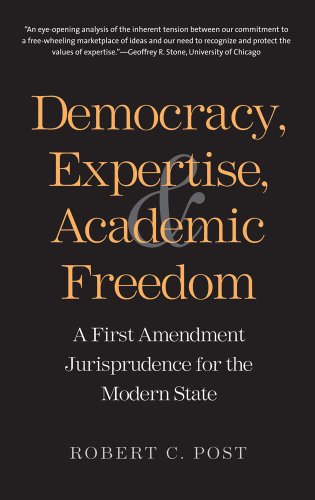

Most ebook files are in PDF format, so you can easily read them using various software such as Foxit Reader or directly on the Google Chrome browser.
Some ebook files are released by publishers in other formats such as .awz, .mobi, .epub, .fb2, etc. You may need to install specific software to read these formats on mobile/PC, such as Calibre.
Please read the tutorial at this link: https://ebookbell.com/faq
We offer FREE conversion to the popular formats you request; however, this may take some time. Therefore, right after payment, please email us, and we will try to provide the service as quickly as possible.
For some exceptional file formats or broken links (if any), please refrain from opening any disputes. Instead, email us first, and we will try to assist within a maximum of 6 hours.
EbookBell Team

4.7
96 reviewsA leading American legal scholar offers a surprising account of the incompleteness of prevailing theories of freedom of speech. Robert C. Post shows that the familiar understanding of the First Amendment, which stresses the “marketplace of ideas” and which holds that "everyone is entitled to an opinion," is inadequate to create and preserve the expert knowledge that is necessary for a modern democracy to thrive. For a modern society reliably to answer such questions as whether nicotine causes cancer, the free and open exchange of ideas must be complemented by standards of scientific competence and practice that are both hierarchical and judgmental.
Post develops a theory of First Amendment rights that seeks to explain both the need for the free formation of public opinion and the need for the distribution and creation of expertise. Along the way he offers a new and useful account of constitutional doctrines of academic freedom. These doctrines depend both upon free expression and the necessity of the kinds of professional judgment that universities exercise when they grant or deny tenure, or that professional journals exercise when they accept or reject submissions.